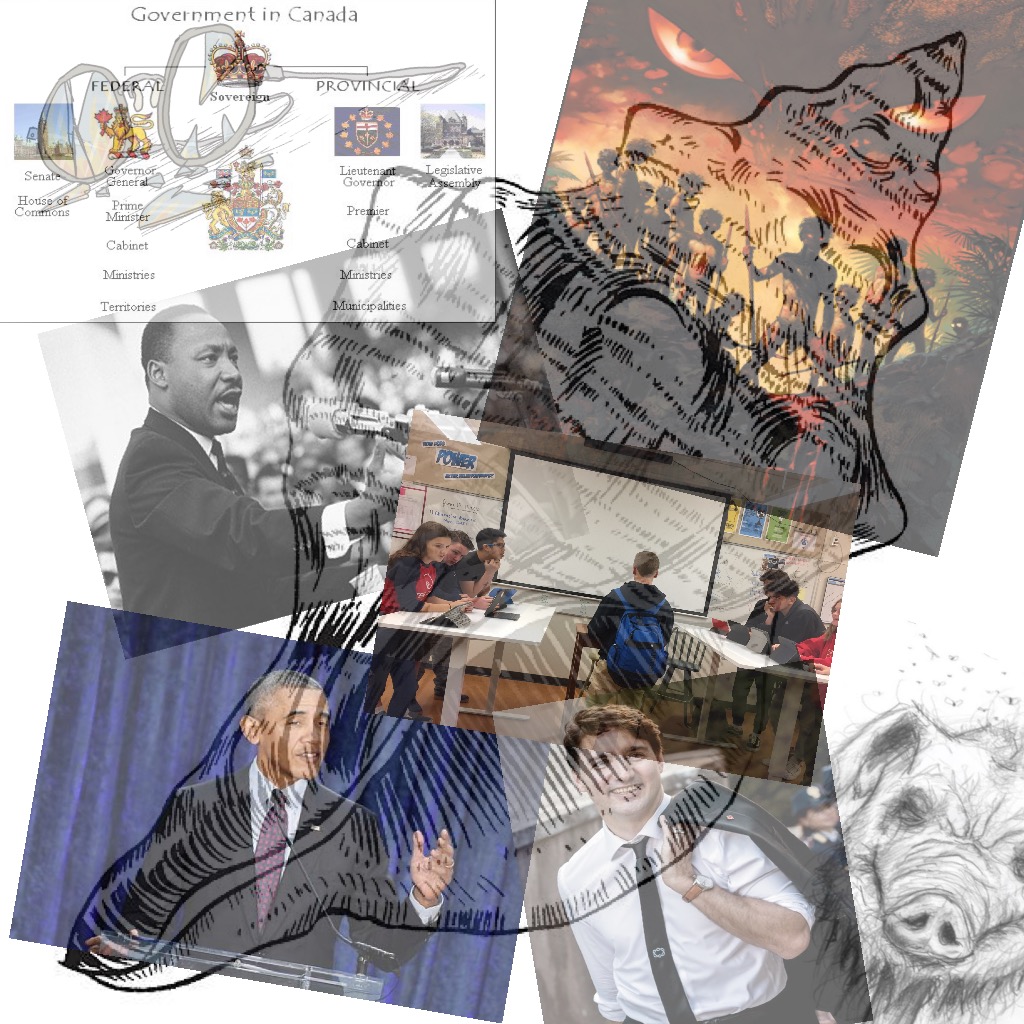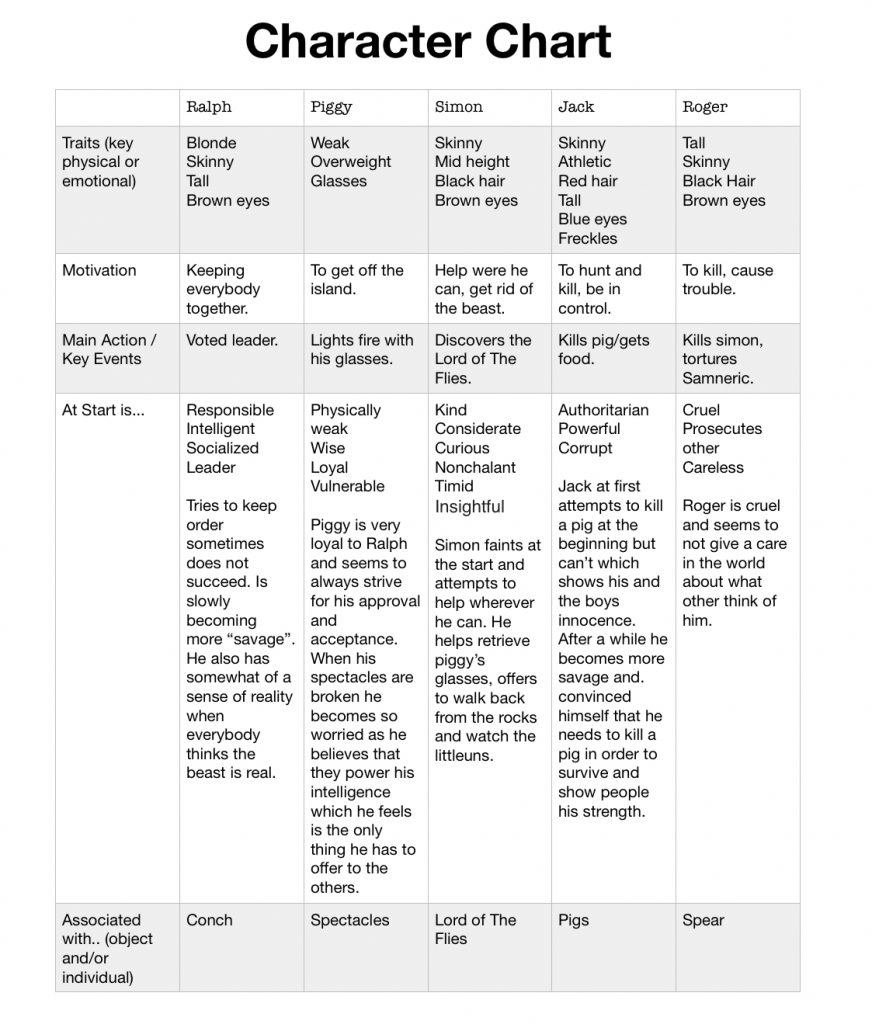Posted on June 18, 2018
Lord of The Flies and The Great Debate!
Recently we wrapped up a huge unit in humanities, it was surrounded around the idea of human nature, laws, politics and debates. Throughout this unit we would take part in reading a book, social experiments, debates and elections. Overall I think this was one of my favorite unit’s this year!
To kick this all off we did our first social experiment. Our task was to create groups of four or five, but here’s the twist the teacher left the room! Now for most normal classes this might have been somewhat of an easy task, but our class is nowhere near to normal. We all have so many different personalty’s, priority’s and perspectives so when it came to a simple task like creating groups we all had things to say. When the teacher left the room we wrote on the board six names (these were the heads of the groups) everybody then began shouting out ideas and places to put people, so I came up with the idea of a talking stick. Unfortunately, the then talking stick turned into a pile of useless ripped up cardboard. Everything went down hill from there, in the end we did execute the task and create equal teams but all this came along with lots of shouting, cursing and standing on chairs. Although this was a rough start I think it gave us all a glimpse of how we act as humans when put in situations with no order. Without us knowing this led us into a big part of our unit, Lord Of The Flies or LOTF!
LOTF is a book that students ages fifteen to seventeen usually read for school. It’s a story about boys who crash on an unknown island and have to survive, we learn the truth about human nature along with what the young boys have to do in order to survive. Our task was to read certain chapters over a series of weeks, every week we would also do a book quiz. As I was saying before our class put our selves into teams, these teams would be our table groups and project partners. My team mates were Kyle, Ethan and Parker! With these groups we would also be taking part in a second social experiment. The experiment was essentially a point system that would be taking place throughout the whole unit! The points were given and reduced when we did certain things. After about a week of doing the point system the class started to feel like a mini political system with laws and everything! Instead of making a list of the point system I’ll just add a picture of the sheet below.
Throughout the book we also talked about many different concepts like:
– Power and Authority
– Humanity and Inhumanity
– Violence and Destruction
– Human Nature
– Civilization and Savagery
– Individualism and Community
These concepts would eventually relate back to our end of the unit project, a debate! To get a better understanding of these concepts we brainstormed topics and ideas that we learned about throughout the year like Disruption, WWI, WWII and Sins of The City. Here’s an example of one of our concept posters:
Finally to become more comfortable with these concepts we wrote two paragraphs on the topics. The paragraph could talk about really anything we wanted as long as we drew back to either one of the concepts. One of my paragraphs talked about the Inhumanity of war and the other talked about anarchy in Somalia. Here’s a screenshot of the two paragraphs:
Throughout the book we were also filling out a character sheet as we finished each chapter. The book was very complex so this really helped us get a grasp of each of the characters. As well as this we completed a book symbol sheet, we did this because the book was filled with symbols of order, civility and evil. These symbols were a very important part of the book and gave it more meaning. Here’s my character analysis chart!
A huge part of this unit was understanding forms of government, political systems and electoral systems. Throughout the weeks we completed many assignments to further our understanding of governments. We started with learning different forms of government like democracy, anarchy, monarchy, dictatorship, oligarchy and theocracy. We got into groups and created keynotes stating where it can be found, how it works, who is in charge and the pros and cons. Next we learned about the role of the charter in our constitution. The constitution is a body of fundamental principals that state how an organization is governed, there are four main rights the constitution and charter talk about. These four rights are rule of law, freedom, democracy and minority rights. After discussing this topic we created our own flow chart of Canada’s government, here’s mine!
After learning about politics in our country we completed an assignment that would give us an idea of where we were on the political spectrum. The questionnaire asked us our opinion about abortion, current events, rights and laws in Canada. Then depending on our answer it would give us a certain amount of points that would place us on a number line with right wing on one side and left wing on the other. I got a score of 68 which put me on the far left wing of the spectrum. After this we took on the difficult task of trying to figure out our countries different electoral system. BC uses a system called First Past the Post, which is in my opinion the simplest of them all. Basically what happens is each voter can vote once for a candidate of their choice in each riding. The candidate with the most votes wins, simple as that! There are also a few other electoral systems like Proportional Representation (something BC may be voting for this summer), Ranked Ballot and Mixed Member Proportional. Overall we got a very thorough glimpse of our country’s politics aswell as how some other countries work!
The final portion of this unit was learning to debate! Throughout this portion we played many games that improved our critical thinking skills and taught us to think on our feet! My favorite game was “Pass The Buck” and “A Story“. The purpose of pass the buck was mostly to get us to think on our feet. What happened was each team mate went outside and got a topic from the teacher like “why is bubble gum great?“, the student would then silently go back to their seat and begin to talk to their teammates about there topic without telling them what it is. Once the teacher said pass the buck the next teammate had to build off of their statement still without knowing the topic. This would go on for a few minutes, the game taught us to think critically as well as paying attention and communicating with our teams cues. To further practice our speaking skills we played another game called “impromptu speeches” this helped us get rid of those distracting words we use in our everyday life like “um”, “you know” and “like”.
We then watched a TED talks giving us seven key tips of the greatest speakers which we took notes on. Here’s the seven main tips:
1. Word choice
2. Tone: Passion
3. Body language: look into somebody’s eye’s.
4. Headline: what you want too get across.
5. Nothing more than having a conversation that you are passionate about. Don’t give a Speech or performance. Connect on a human level.
6. The four languages of human connection: visual (energy), auditory (tone), auditory digital (analytical), kinesthetic (Connecting). Do all four of the languages to be a great speaker.
7. Authentic passion: what is it that is compelling about you
After this we began listening to podcast called intelligence squared. This was a podcast that debated various topics like North Korea, nuclear bombs and even romance! While listening to these we took notes since our debates were going to be very similar.
As you probably know by now our final project for this unit was our debate. With the debate we actually made a podcast, we also got a few student volunteers to be hosts and some teachers to be judges! Click on the topics below to listen to the correlating podcasts.
Human Nature (this one is mine)
Our debate groups were our teams we made at the beginning of the unit. For this debate we had approximately six days to prepare everything after we got out topics. To get our topics we actually got to vote for the ones we wanted. After we voted we flipped a coin for who would get pro or con. Our teams topic was human nature and the statement was “Be it resolved it is human nature to put yourself above others“, we were pro. The guidelines for this was pretty simple, we had to get evidence and debate only on things we had learned throughout the year. Our team began by making a Google doc, then a chart where we could brainstorm ideas on different topics. The debate followed a standard outline, here it is:
– Introductions: 2-3 minutes
– Hosts, Topics, Teams
– Opening Statements: 2 minutes each side, PRO, CON
– Rebuttal: 2 minutes each side, PRO, CON
– Question from judge or audience: 1 minute each side, PRO, CON
– Concluding statements: 1 minute each side PRO, CON
Once our team had lots of notes and rebuttals we practiced our opening and closing statements. After watching the first two debates we learned alot. I think the most important part we learned was not to follow a script and just speak from your knowledge, in my opinion this ended up making our debate alot more genuine. Unfortunately we lost, but I definitely learned a lot from the debate. I think the biggest thing we could have improved was pulling on more unique ideas because I found we really only talked about a few subjects.
Overall I learned alot this unit, and improved many skills. Instead of just listing all these big ideas and skills I learned I created a web of learning using mind node. Here it is!
Overall I really liked this unit because it really pushed me outside of my comfort zone. Although I like to talk a lot, I hate public speaking. But throughout the unit I gained alot more insight and tips to being a great speaker giving me much more confidence! I think the most important thing I took away from becoming a great speaker is to memorize concepts not content. This essentially means to talk from the heart and not from a script!

















